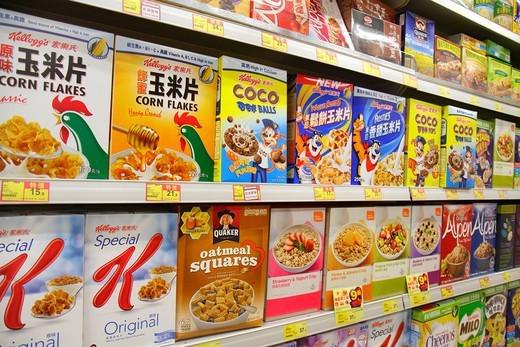

Take the Cereal Out of Your Diet

"It’s widely recommended your morning meal should provide around 20% of your daily energy. It should also contribute significantly to your daily nutrient intake, including carbohydrates, vitamins, minerals, protein and fibre. And children need to get up to a quarter of their daily calcium from their breakfast too. So breakfast has a pretty big job to do!" This is a quote from the Nestlé web site, and they quote two "scientific" studies to support their position.
"Since the end of 2015, there is no more than 9 grams (around two teaspoons) of sugar per 30 grams serving in all cereals popular with children and teens. And we've invented savvy new ways of removing sugar from our cereals. Globally, we've removed 100 000 tonnes of sugar since 2008. And by the way – we don't use any artificial sweeteners." Nestlé web site.
 Health Benefits of Breakfast Cereal
Health Benefits of Breakfast Cereal
Experts worldwide agree that breakfast is the most important meal of the day, for kids and adults alike. Ready-to-eat cereal ranks as one of the best choices available as part of a nutritious breakfast.
When we launched our Breakfast Club programme in 1998, the very idea of pre-school clubs was something new. (This is from Kellogg's UK website)
Today, that situation has changed completely as 85% of schools now run a Breakfast Club, and teachers and parents look to these clubs to help with everything from attendance and attainment to hunger and providing pre-school care. The growth of these clubs is a testament to the benefits they bring.
The Take-Out Diet
Low glycaemic index foods are an ineffective way to achieve what is much more easily done by the simple restriction of carbohydrates. It's a failure as a dietary system.
All carbohydrates are broken down into disaccharide and then to monosaccharides in the small intestine.
There is no need to have any carbohydrate in your diet. Eliminate simple carbohydrates, that's an easy decision. Minimise complex carbohydrates, they are of little health value and are always non-essential.
Zoë Harcombe
The dietary advice to eat whole grains is not evidence based. Breakfast cereals are not even whole grain foods, and are inferior nutrition.
The advantage of cereals for breakfast are few. They have a large number of calories for a small cost. They are a source of zinc and possibly selenium or manganese.
Cereals lack vitamins A, B12, C and D. They have no complete protein. Cereals are low in essential fatty acids. Despite what dietitians often say, cereals are a very poor form of nutrition.
The value of a cereal breakfast lies almost entirely in the whole fat milk that's poured over it.
If there is added sugar the breakfast does more harm than good.